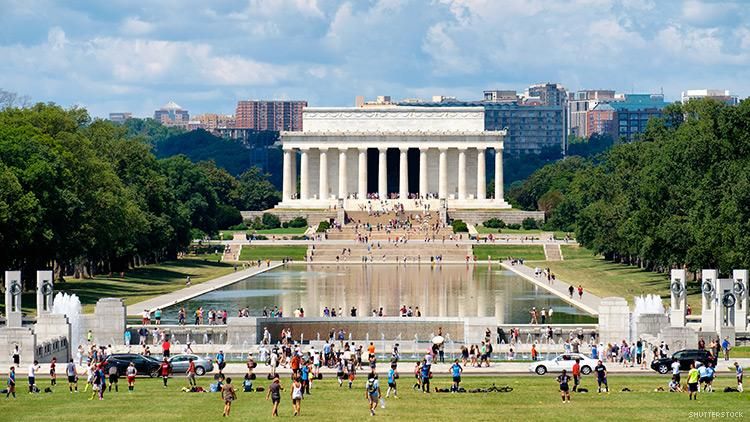Orlando activists want to remember lives lost at the Pulse shooting with a mass die-in at the National Mall in Washington, D.C., and survivors of the Pulse nightclub massacre and of this year's school shooting in Parkland, Fla., have helped spread the word.
Amanda Fugleberg, a lifelong Orlando resident, is still shaken by the June 12, 2016 mass shooting that occurred 15 minutes from her home. “It was the first news I saw when I woke up that day and I remember the death toll just rising,” she says.
Now she will go to Washington, D.C., to lead the National Die-In, scheduled for June 12, two years to the day after the Orlando tragedy. The idea came about just a week and a half ago, and she and co-founder Frank Kravchuk quickly pulled together proper permitting. Fugleberg also reached out to Parkland survivor-turned-activist David Hogg, who just led a successful die-in protest against a Florida grocery chain for supporting a National Rifle Association-backed candidate. She says Hogg expressed strong support for the idea and helped publicize the event.
Kravchuk says he would like to see as many as 100,000 people participate in a die-in in front of the Capitol on June 12.
The noon die-in will last 12 minutes; the 700-second time period is meant to honor the approximate 700 victims of mass shootings who have died since the Pulse massacre took place, a period that has seen little progress in terms of federal gun reforms.
That act will be preceded by a 10:30 a.m. rally for gun reform. Additionally, the event has already inspired die-ins at state capitals and NRA offices around the country.
A Twitter account for the event quickly amassed hundreds of followers. Fugleberg, Kravchuk and Nurah Abdulhaqq also established a GoFundMe page to raise resources for The Foundation of the National Die-in. Organizers say the event could become an annual event, and there may be other similar protests to commemorate other mass shootings.
Neither Kravchuk nor Fugleberg knew anyone directly impacted by the Pulse tragedy, but both hail from the Orlando area and count themselves as LGBT allies. Kravchuk, a University of Florida student who grew up in Orlando suburb Oviedo, says he’s known many friends in the LGBTQ community who “can’t go and live their daily lives without being targeted by somebody,” and remains angry that warning signs about the Pulse shooter's propensity for violence did not prevent the Pulse tragedy.
Since beginning plans for the National Die-In, organizers have reached out to Pulse survivor Brandon Wolf, now a prominent gun control activist. Wolf says he’s working on a protest in Orlando on June 11, a day before the Pulse anniversary, and he sees potential to link up with National Die-In to amplify both causes.
As for their own policy demands, Fugleberg and Kravchuk most want to see stronger screening for gun ownership. “I’d like to see universal background checks, which right now are not great considering the Pulse shooter was able to acquire guns when he’d been on an FBI watch list,” Fugleberg says.
A Facebook page has been set up for the National Die-In, as well as an events page to mark participants' attendance.
